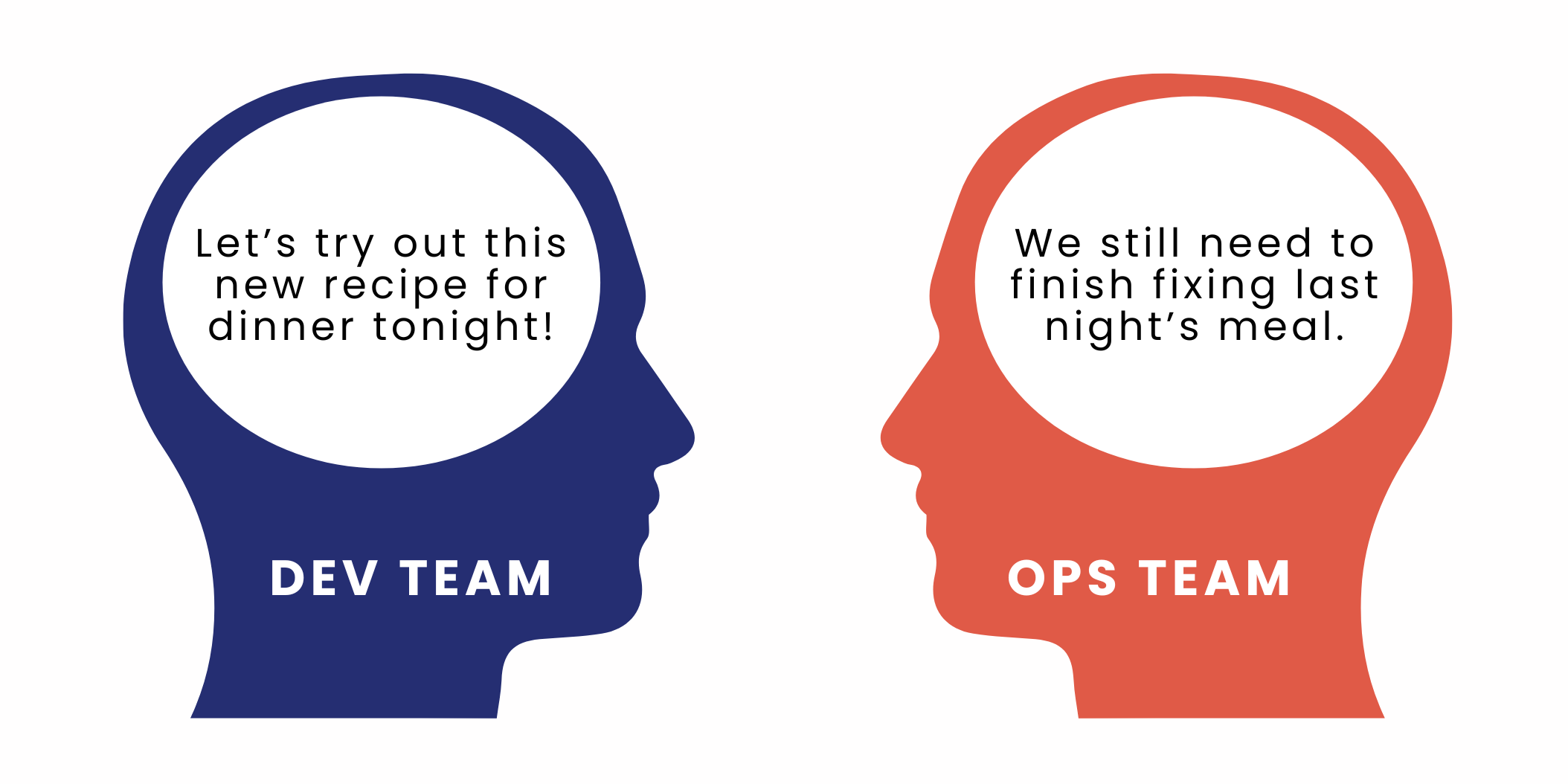One day, you are promoted to Vice President of Operations, and immediately, you discover issues with your new digital product. You call a meeting with your team. Here’s how the conversation goes:

Operations: “We weren’t informed about the new release planned for this evening.
Developer: “We sent out an email last week. Didn’t you see it?”
Operations: “Emails aren’t enough. We need more direct communication and clear documentation. How are we supposed to prepare for it?”
You are not alone. This scenario happened in the book titled “The Phoenix Project”. The protagonist, Bill, deals with significant communication issues between the development and operations teams. In one instance, there is a lack of coordination about a critical release. This highlights the need for better alignment and communication.
When the Dev Team Thinks They Are Done, but the Ops Team Has Different Plans
In the world of DevOps, the gap between development and operations often creates friction. When the dev team wraps up their work and believes the project is ready, the ops team might uncover unforeseen issues or deployment challenges. Consequently, this disconnect leads to delays, frustration, and extra work. In short, the challenge of improving efficiency and addressing project delays often lies in this very gap between teams. This is where DevOps works its magic.

Why DevOps?
Why DevOps? Because We Have All Been There. Traditional workflows often lead to bottlenecks and miscommunications between teams, resulting in long release times and higher expenses. DevOps addresses these challenges by fostering collaboration between development and operations, streamlining processes to cut costs and reduce delays. Its focus on continuous integration and delivery not only accelerates product releases but also creates space for ongoing improvement without disrupting ongoing work.
Moreover, security is also integral to DevOps (DevSecOps). Without security integration, DevOps can lead to vulnerabilities. The shift to DevSecOps highlights the importance of embedding security practices within the DevOps pipeline, ensuring that security is not an afterthought but a core component of the development process.
Another thing about DevOps is Continuous Improvement Over Perfection. DevOps shifts the mindset from “get it perfect” to “get it better.” By embracing continuous integration and delivery, teams can release incremental improvements, gather feedback, and iterate quickly, rather than waiting for a perfect product that may never arrive.
In Summary
At this point, the key takeaway is that the real ROI of DevOps is time. While many organizations focus on the cost savings that DevOps can offer, the true value lies in the time it saves. By streamlining processes and improving collaboration, DevOps transforms your workflow from chaos to smooth sailing!
Article written by Marilyn Wong, Conference Producer (APAC) at Zenith Bizness Excellence, Kuala Lumpur.

